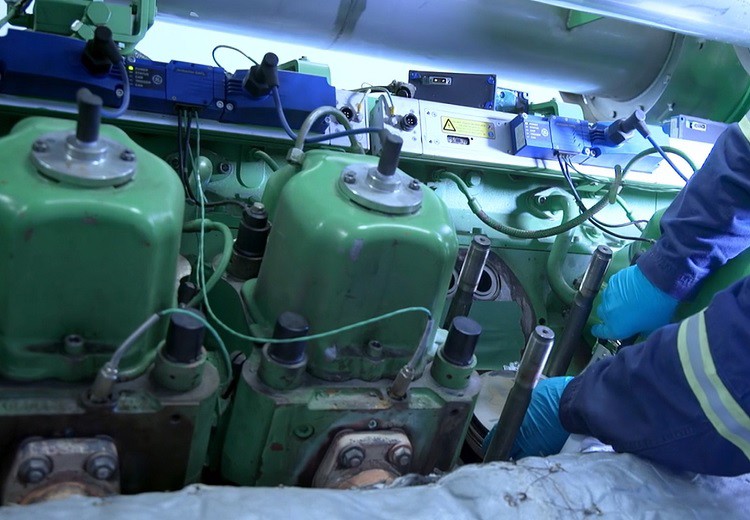Videos
Lubricating heavy-duty hydrogen engines
16 April 2024

Gas engine manufacturers are introducing large, powerful and highly efficient engines into their product line-up to help customers maximise their returns. These new engines are very different from their predecessors and it is challenging for current oils to meet their lubrication requirements. Watch this video to learn how Infineum has been working to develop next generation gas engine oils that deliver advanced engine protection over longer drain intervals.
Gas engines are constantly evolving. Manufacturers are introducing new engines which are more powerful and more efficient than their predecessors. These new engines are helping customers maximise the return on their investment, but they are also creating more demanding requirements for lubricants.
Modern engines tend to operate at higher temperatures and higher pressures than older engine designs. These design changes, as well as associated changes in operating conditions, can produce new and unexpected stresses on the lubricant, which haven’t previously been seen.
With current lubricants struggling to meet the demands of the latest engines, Infineum has been working to develop the next generation of gas engine oils, designed to excel in the latest hardware.
Testing these formulations in real world situations is critical to gaining a deep understanding of the underlying chemistry of the lubricant and its operating environment, which is why we’ve collaborated with Houweling’s Tomatoes, a family owned, world-renowned greenhouse tomato grower.
At the Houewling’s site in British Columbia, Canada, we’ve been field testing our lubricants in their Jenbacher 624H engines. This partnership helps us ensure our products undergo rigorous testing and provides Houweling’s with multiple benefits.
Using a gas engine for CHP benefits us in many ways, as we use all the flue gases for CO2 in the greenhouse to fertilise the plants. As well as we take the heat off the water and use it to heat up the greenhouses. It keeps us power to the site, so we sell it back to the grid, as well as we use it to supply all our grow lights, so we have the advantage of keeping our plants 24 hours a day, 365 days a year.
The engine oil is basically the lifeblood of the engine. If you use an inferior oil product, you’re going to deteriorate your engine much quicker. Just like a car, the better the oil product, the better mileage you get and the longer the life you get out of the engine.
So, for Houweling’s this engine has to remain running 24/7 until it reaches GE Jenbacher’s recommended maintenance intervals. You only want this engine to come down once every 2,000 hours. If it comes down in between that time, they’re losing money, they’re losing production.
Our testing has led us to conclude that the deposits found in modern gas engines are different to those found in older generations of engines and therefore require new formulation approaches to provide the required level of oil performance.
In this market, to keep utilisation rates up and running costs down, it is important for oil changes to coincide with the standard service maintenance interval. Oils must be capable of reliable operation beyond this period, so that they do not force the engine out of service for unscheduled maintenance.
We have that option to wait for the 2,000 hours service. When we were using other oils, before Infineum came in, we were having to shut down at 1,500 hours, 1,100 hours. Instead now we get to expand out to 2,000 – 2,400 hours and it’s a big benefit to us.
The longer you can run the engine without having to shut it down and the change the oil, the better off you are, the more efficient it is, the easier it is on the engine. The engine doesn’t like to be turned on and off, it is better if you can keep it running 24 hours a day, 7 days a week. So, the longer that we can run it through our intervals, the better off we are.
Designing lubricants that are effective in modern gas engines is challenging and requires expert knowledge of all the relevant components and chemistries. Our field testing enables us to formulate gas engine oils with new high-performance additives and high-quality base stock combinations, which ultimately deliver market-leading lubricants able to keep engines running more efficiently for longer.
Sign up to receive monthly updates via email